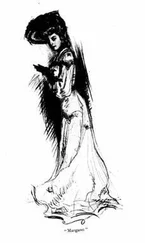James Cabell - Gallantry. Dizain des Fetes Galantes
Здесь есть возможность читать онлайн «James Cabell - Gallantry. Dizain des Fetes Galantes» весь текст электронной книги совершенно бесплатно (целиком полную версию без сокращений). В некоторых случаях можно слушать аудио, скачать через торрент в формате fb2 и присутствует краткое содержание. Жанр: Фэнтези, на английском языке. Описание произведения, (предисловие) а так же отзывы посетителей доступны на портале библиотеки ЛибКат.
- Название:Gallantry. Dizain des Fetes Galantes
- Автор:
- Жанр:
- Год:неизвестен
- ISBN:нет данных
- Рейтинг книги:5 / 5. Голосов: 1
-
Избранное:Добавить в избранное
- Отзывы:
-
Ваша оценка:
- 100
- 1
- 2
- 3
- 4
- 5
Gallantry. Dizain des Fetes Galantes: краткое содержание, описание и аннотация
Предлагаем к чтению аннотацию, описание, краткое содержание или предисловие (зависит от того, что написал сам автор книги «Gallantry. Dizain des Fetes Galantes»). Если вы не нашли необходимую информацию о книге — напишите в комментариях, мы постараемся отыскать её.
Gallantry. Dizain des Fetes Galantes — читать онлайн бесплатно полную книгу (весь текст) целиком
Ниже представлен текст книги, разбитый по страницам. Система сохранения места последней прочитанной страницы, позволяет с удобством читать онлайн бесплатно книгу «Gallantry. Dizain des Fetes Galantes», без необходимости каждый раз заново искать на чём Вы остановились. Поставьте закладку, и сможете в любой момент перейти на страницу, на которой закончили чтение.
Интервал:
Закладка:
The genealogically inclined will be happy to discover that Gallantry , for all its revulsion from reality, deals with the perpetuated life of Manuel in a strangely altered milieu . The rest of us will be quicker to comprehend how subtly this volume takes its peculiar place in its author's record of struggling dreams, how, beneath, a surface covered with political finery and sentimental bric-a-brac, the quest goes on, stubbornly and often stupidly, in a forgotten world made suddenly animate and as real as our own.
And this, the thesis will conclude, is because Cabell is not as much a masquerader as he imagines himself to be. None but a visionary could wear so constantly upon his sleeve the desire "to write perfectly of beautiful happenings." None but the poet, shaken with the strength of his vision, could cry to-day, "It is only by preserving faith in human dreams that we may, after all, perhaps some day make them come true." For poetry, to which all literature aspires, is not the shadow of reality but the image of perfection, the light of disembodied beauty toward which creation gropes. And that poetic consciousness is the key to the complex and half-concealed art of James Branch Cabell.
LOUIS UNTERMEYER.
New York City, April, 1922.
THE EPISTLE DEDICATORY
TO MRS. GRUNDY
Madam,—It is surely fitting that a book which harks back to the manners of the second George should have its dedication and its patron. And these comedies claim naturally your protection, since it likewise appears a custom of that era for the poet to dedicate his book to his most influential acquaintance and the one least likely to value it.
Indeed, it is as proper that the plaudits of great persons be reserved for great performances as it is undeniable these tiny pictures of that tiny time aim little at the lofty and sublime.
Yet cognoscenti still esteem it an error in the accomplished Shakespeare that he introduced a game of billiards into his portrayal of Queen Cleopatra's court; and the impropriety had been equal had I linked the extreme of any passion with an age and circle wherein abandonment to the emotions was adjudged bucolic, nay, Madam, the Eumenides were very terrifying at Delphi, no doubt, but deck them with paint, patch, and panniers, send them howling among the beau monde on the Pantiles, and they are only figures of fun; nor may, in reason, the high woes of a second Lear, or of a new Prometheus, be adequately lighted by the flambeaux of Louis Quinze.
Conceive, then, the overture begun, and fear not, if the action of the play demand a lion, but that he shall be a beast of Peter Quince's picking. The ladies shall not be frighted, for our chief comedians will enact modish people of a time when gallantry prevailed.
Now the essence of gallantry, I take it, was to accept the pleasures of life leisurely and its inconveniences with a shrug. As requisites, a gallant person will, of course, be "amorous, but not too constant, have a pleasant voice, and possess a talent for love-letters." He will always bear in mind that in love-affairs success is less the Ultima Thule of desire than its coup de grace , and he will be careful never to admit the fact, especially to himself. He will value ceremony, but rather for its comeliness than for its utility, as one esteeming the lily, say, to be a more applaudable bulb than the onion. He will prink; and he will be at his best after sunset. He will dare to acknowledge the shapeliness of a thief's leg, to contend that the commission of murder does not necessarily impair the agreeableness of the assassin's conversation; and to insist that at bottom God is kindlier than the genteel would regard as rational. He will, in fine, sin on sufficient provocation, and repent within the moment, quite sincerely, and be not unconscionably surprised when he repeats the progression: and he will consider the world with a smile of toleration, and his own doings with a smile of honest amusement, and Heaven with a smile that is not distrustful.
This particular attitude toward life may have its merits, but it is not conducive to meticulous morality; therefore, in advance, I warn you that my Dramatis Personae will in their display of the cardinal virtues evince a certain parsimony. Theirs were, in effect, not virtuous days. And the great man who knew these times au fond , and loved them, and wrote of them as no other man may ever hope to do, has said of these same times, with perfect truth:
"Fiddles sing all through them; wax-lights, fine dresses, fine jokes, fine plate, fine equipages, glitter and sparkle: never was there such a brilliant, jigging, smirking Vanity Fair. But wandering through that city of the dead, that dreadfully selfish time, through those godless intrigues and feasts, through those crowds, pushing, and eager, and struggling,—rouged, and lying, and fawning,—I have wanted some one to be friends with. I have said, Show me some good person about that Court; find me, among those selfish courtiers, those dissolute gay people, some one being that I can love and regard. " And Thackeray confesses that, for all his research, he could not find anybody living irreproachably, at this especial period….
Where a giant fails one may in reason hesitate to essay. I present, then, people who, as people normally do, accepted their times and made the best of them, since the most estimable needs conform a little to the custom of his day, whether it be Caractacus painting himself sky-blue or Galileo on his knees at Santa Maria. And accordingly, many of my comedians will lie when it seems advisable, and will not haggle over a misdemeanor when there is anything to be gained by it; at times their virtues will get them what they want, and at times their vices, and at other times they will be neither punished nor rewarded; in fine, Madam, they will be just human beings stumbling through illogical lives with precisely that lack of common-sense which so pre-eminently distinguishes all our neighbors from ourselves.
For the life that moved in old Manuel of Poictesme finds hereinafter in his descendants, in these later Allonbys and Bulmers and Heleighs and Floyers, a new milieu to conform and curb that life in externes rather than in essentials. What this life made of chivalrous conditions has elsewhere been recorded: with its renewal in gallant circumstances, the stage is differently furnished and lighted, the costumes are dissimilar; but the comedy, I think, works toward the same denouement , and certainly the protagonist remains unchanged. My protagonist is still the life of Manuel, as this life was perpetuated in his descendants; and my endeavor is (still) to show you what this life made (and omitted to make) of its tenancy of earth. 'Tis a drama enactable in any setting.
Читать дальшеИнтервал:
Закладка:
Похожие книги на «Gallantry. Dizain des Fetes Galantes»
Представляем Вашему вниманию похожие книги на «Gallantry. Dizain des Fetes Galantes» списком для выбора. Мы отобрали схожую по названию и смыслу литературу в надежде предоставить читателям больше вариантов отыскать новые, интересные, ещё непрочитанные произведения.
Обсуждение, отзывы о книге «Gallantry. Dizain des Fetes Galantes» и просто собственные мнения читателей. Оставьте ваши комментарии, напишите, что Вы думаете о произведении, его смысле или главных героях. Укажите что конкретно понравилось, а что нет, и почему Вы так считаете.



